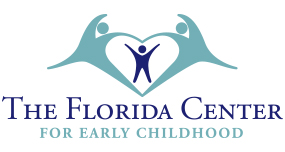Bullying Awareness in Preschool Age Children
With one in five children 2 to 5 years old experiencing bullying it is important for parents, caregivers, and educators to realize the significance of bullying awareness in preschool age children. Preschool is a critical stage in a child’s development where they begin to interact with their peers and form the foundation for social skills. However, this period can also be marked by the unfortunate presence of bullying, which can have lasting negative effects on a child’s emotional well-being and self-esteem.
In this episode of Coffee with Consultants, mental health therapists Linda and Mariana discuss the types of bullying, how to recognize bullying in young children, and ways to prevent bullying.
(Linda and Mariana are mental health consultants for preschool-age children through The Florida Center’s early childhood education program.)
Bullying in preschool may not take on the same form as it does in older children, but it can still be distressing for the victims involved. Preschool-age children are still learning how to regulate their emotions and may not fully understand the impact of their actions on others.
What is Bullying?
Bullying is a form of emotional or physical abuse that has three defining characteristics:
- Deliberate – A bully’s intention is to hurt someone.
- Repeated – A bully often targets the same victim again and again.
- Power imbalanced – A bully chooses victims he or she perceives as vulnerable.
There are three main types of bullying:
- Physical – Using actions to hurt, such as hitting and pushing.
- Verbal – Using words to hurt, such as taunting and name-calling.
- Social – using friendships to hurt, such as excluding someone or saying someone can’t be a friend.
Strategies for Bullying Awareness
At the preschool age there is a curiosity about differences which can sometimes turn into bullying. By teaching young children to accept differences in others we can help to prevent bullying. Use storytelling, role-playing, and age appropriate books to talk about the concept of diversity, teaching children how to respect and celebrate people’s differences. Two books that Marianna and Linda recommend are, “What Makes Us Unique?” by Dr. Jillian Roberts and “We’re Different, We’re the Same” by Bobbie Kates.
Bullying awareness in preschool-age children plays a crucial role in shaping their social and emotional development. By implementing age-appropriate strategies, we can foster empathy, respect, and kindness while teaching children the value of inclusive and respectful interactions. As we equip our young ones with these essential life skills, we create a brighter future where bullying becomes a thing of the past, replaced by a culture of compassion and understanding.


